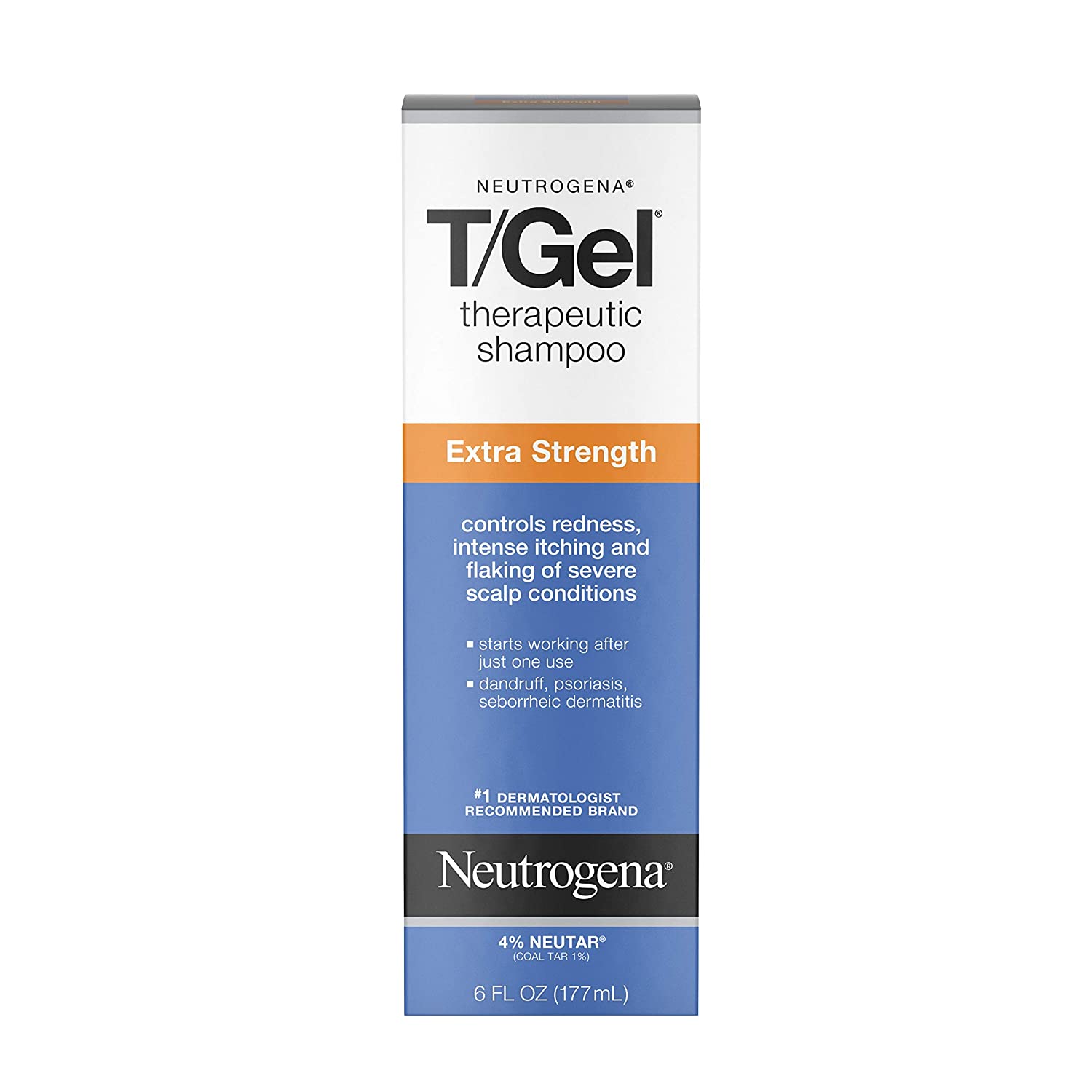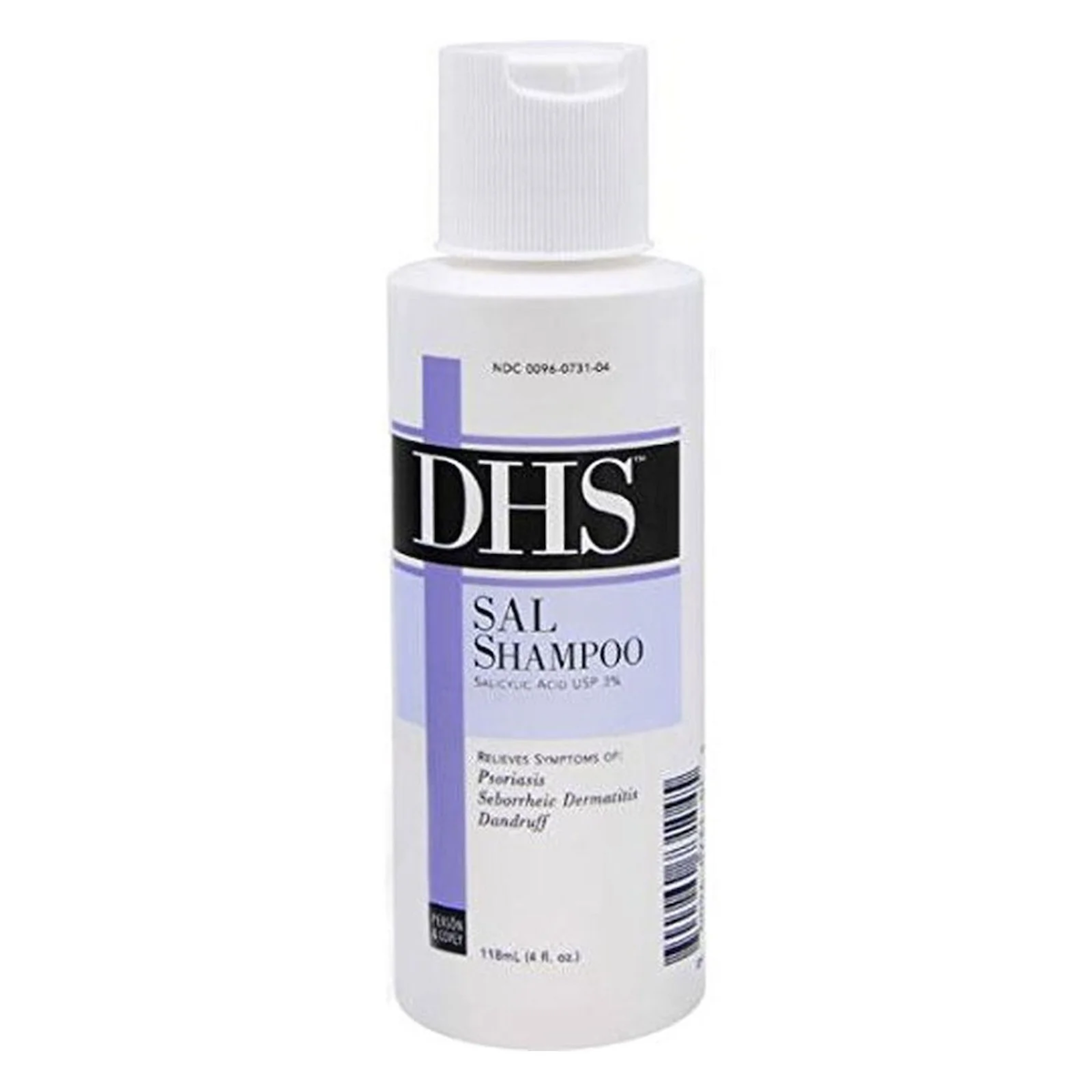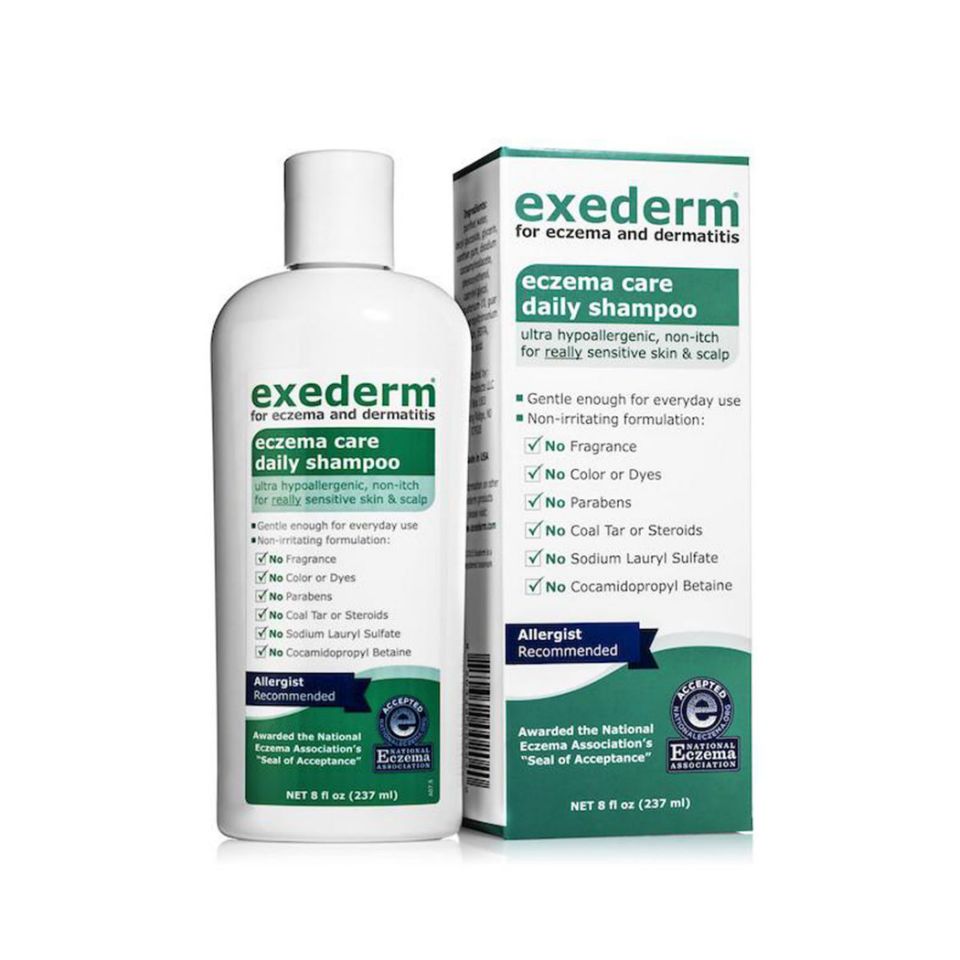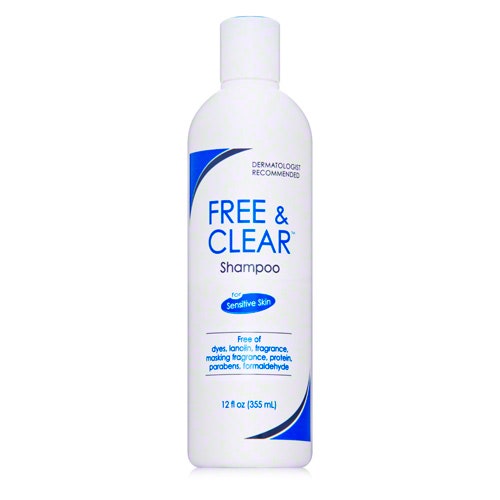
A dry scalp can also be caused by how frequently (or infrequently) you shampoo. “If you shampoo too often, you could dry out your scalp, but if you shampoo too infrequently, your skin’s natural oil can build up, making your head feel flaky or itchy,” says Geraghty. “Most women know what makes their scalp and hair feel good, and that’s what you should stick with, regardless of any no-shampoo or infrequent-shampoo trends.”
The Treatment
Start by considering how often you’re washing your hair. Does itchiness come whenever you’re stretching between washes with dry shampoo? If so, either switch formulas (here’s a list of the best dry shampoos) or hit the shower a little more regularly.
If allergies to hair products are a concern, a dermatologist can offer patch testing to see what ingredients your skin may be adversely reacting to. From there it’s rather simple: Switch to a new product that doesn’t contain the offending ingredient, and you should be flake-free in no time.
Psoriasis
Psoriasis is a common skin condition that can cause redness, flaking, and scaling on your scalp. “Usually the scaliness is a lot thicker and more pronounced in psoriasis compared with dandruff. Prescription medicines are often required to control it,” says Geraghty.
The Treatment
People with psoriasis may also benefit from shampoos containing coal tar or salicylic acid and mineral oil as a scalp treatment to help soften and remove scales. A dermatologist can prescribe topical steroid medicines—liquids or foams that dry quickly and don’t tend to weigh down your hair—that can be very helpful in controlling dryness, itching, flaking, irritation, or rash.
Eczema
Eczema is a skin condition that can cause flare-ups of a red, itchy rash all over your body—yes, even on your scalp. “Skin cells are usually held together, forming a barrier that helps skin retain its moisture and prevents things from getting in—people with eczema have a defective barrier,” says says Heather Summe, M.D., a dermatologist with New York’s Northwell Health Medical Group. What this means is that your skin loses moisture more easily, which also makes it easier for allergens and irritants to get in.
The Treatment
Fragrances can often be the culprit behind eczema flare-ups, so you’ll want to look for shampoos and conditioners that are unscented. Good ones can be hard to find, but derms agree that Exederm and Free and Clear are good options. If you suspect eczema could be the cause of your itchy scalp, though, it’s worth scheduling an appointment with a dermatologist so you can create a custom regimen that works best for you.
Your Diet
No one wants to hear that what they’re eating could be a trigger for skin conditions, but the fact is some high-carb foods can contribute to increased yeast on your scalp, which results in flakes.
The Treatment
If you’re prone to dandruff, try cutting back on carbs and sugar to see if you notice a difference. You can also take fish oil supplements, which are rich in omega-3 fatty acids and known to help fight dryness. Zinc, along vitamins A, B, and C, can also help keep your skin hydrated and healthy. And don’t forget to drink more water. (It really does help.)
Dry Scalp Prevention
Treating the underlying cause of dry scalp is the best way to keep the problem from coming back, but there are a couple universal prevention steps you can take.
- As mentioned above, pay attention to when your scalp flares up. If it’s after not washing enough, try to shampoo more regularly—but if you’re already washing every day, try cutting back to every other day.
- Incorporate more scalp products into your routine, whether that’s an anti-dandruff shampoo, a hydrating coconut oil mask, or a calming scalp serum.
- Drink enough water. It’s not a magical cure-all, and it won’t make a dry scalp go away overnight, but dehydration definitely plays a role in your skin’s health. And that’s exactly what your scalp is—skin.
When to See a Dermatologist
You can try anti-dandruff shampoos or switch up your hair-care routine, but at some point you might want to see a professional. “If scalp dryness is very itchy, feels irritated or uncomfortable, or is causing a lot of flaking, it’s worth a trip to a dermatologist to find out what’s going on,” says Geraghty. “A derm can determine the diagnosis, offer medicines, and tailor a skin-and-scalp regimen to help control the problem.”
Lindsay Colameo is a beauty writer in New York City.





